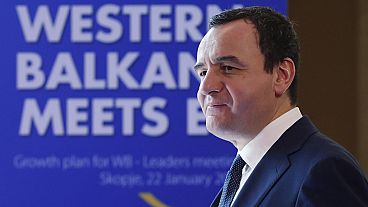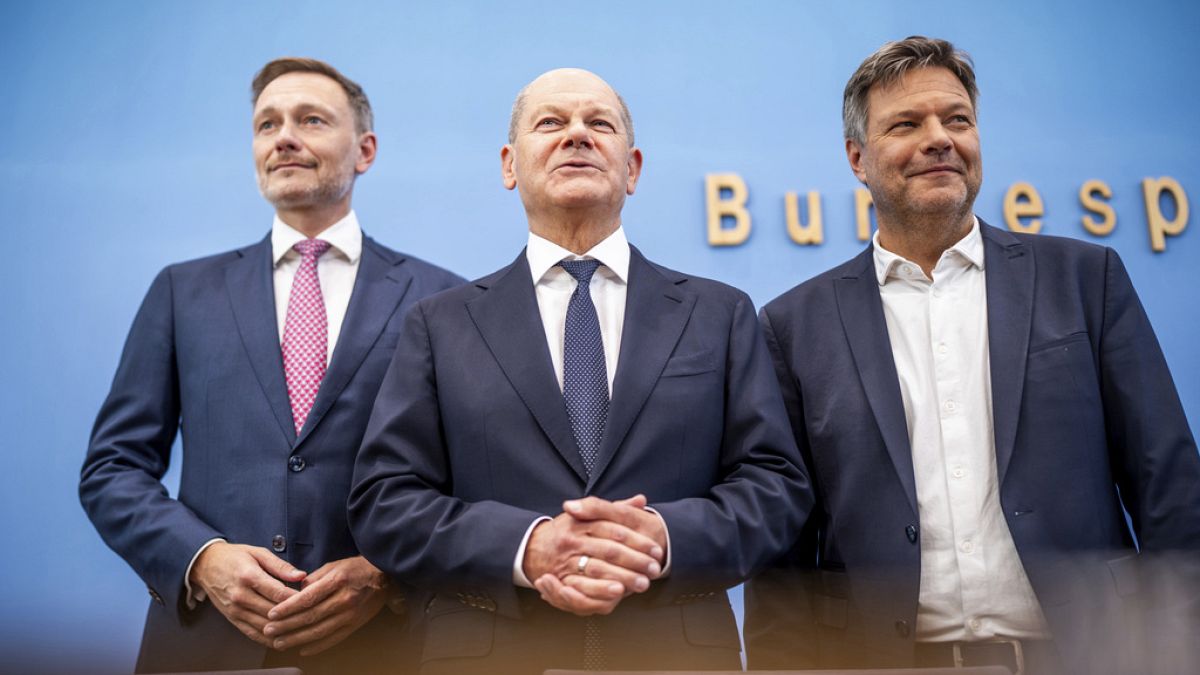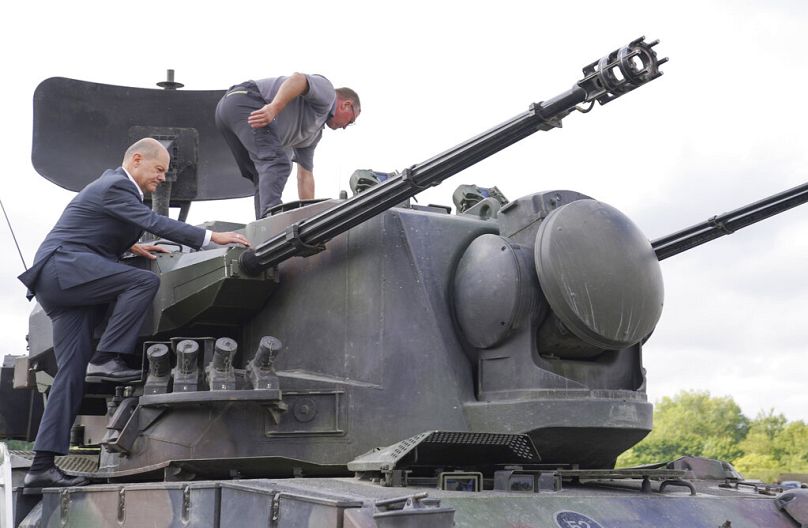Germany has halved its military aid for Ukraine for 2025 compared to this year, according to its proposed budget for the new year.
The German government is set to allocate just four billion euros in the 2025 budget - almost half of the €7.5 billion it had allocated this year.
The budget proposal that the coalition government finalised last Friday after lengthy negotiations will now be examined by the German parliament.
If this cut is confirmed, defence researcher Alain de Neve of the Royal Military Academy of Belgium warns that the impact will not be negligible.
"Obviously, this will have an impact, especially in financial terms. As for concrete military aid in terms of equipment supplied, we can see that Poland is ahead of Germany at this level," he told Euronews.
"We can clearly see that it is Ukraine's neighbouring countries that participate most (in this aid). We should also note the particular case of the United Kingdom, which is also making a much greater contribution than France, Spain or Italy," he explained.
Since 2022, the EU and its member states have donated €38 billionin military aid, of which €28 billion came from Germany.
German aid has mainly been given in the form of "funds for the security capacity building initiative", in addition to five billion euros in armoury sent by its armed forces.
Frozen Russian assets
The G7, which brings together the world's seven largest economies, is discussing the possibility of using part of the $300 billion in frozen Russian assets to supply Ukraine with military equipment.
However, the political and technical details to be discussed by the leaders of Canada, France, Germany, Italy, Japan, the UK and the US won't be easy to resolve, said Alain de Neve. "No, it couldn't really constitute a sustainable resource to support the Ukrainians in their resistance against Russia."
"We have to realise that these $300 billion or so will eventually have to be distributed among several countries. And it is at the G7 that the issue will be debated and negotiated."
"We still don't know what envelope will be allocated to the different states. We don't even know if there will be an agreement to mobilise this reserve. And once again, this reserve will be unique. It won't be a structural measure that can be implemented in the long term," he added.
Only the United States gives Ukraine more military aid than Germany, but the country faces elections in November.
The current Democratic administration has promised to maintain its current level of support to Ukraine. Still, the Republican candidate, Donald Trump, has threatened to withdraw US funding to Ukraine if elected.
"The main danger that could exist is that a European drop - albeit limited - in aid to Ukraine could be accompanied by a particularly notable drop in aid from the United States if Donald Trump were to come to power," de Neve said.
"The question is: can Europe take control in the current situation? It's very difficult to imagine. There will clearly be areas where Europe will not be able to compensate for the absence or reduction of US military and financial aid. Nevertheless, Europe has known for some time that the issue of the war between Ukraine and Russia is first and foremost a European issue," he explained.
Strengthening the defence industry
Aware of this fact, EU leaders decided last February to create a new mechanism for Ukraine, worth €50 million to be spent until 2027, to support the country's recovery and the reforms it must undertake as a candidate for membership of the bloc.
On the other hand, the Union have understood that it has to invest more in its own defence industry in order to help Ukraine and dissuade Russia from attacking any of its members, particularly those bordering that country.
"Europeans, in general, are between a rock and a hard place. On the one hand, there is the aid that must be given to Ukraine to enable it, I would say, to resist Russian pressure," said de Neve.
"On the other hand, there is the need for European rearmament and more economic resources. Budgetary resources are, by definition, limited. So all European countries, in one way or another, in the coming months, in the coming years, will have to make choices that may sometimes be painful."
To help navigate this dossier, the president of the European Commission, Ursula von der Leyen, wants one of the members of her second executive to be exclusively dedicated to a defence portfolio.
They will be in charge of managing the first European defence industrial strategy to improve Europe's readiness and security. The bloc's security and defence policy, meanwhile, will remain in the hands of the EU's chief diplomat, with former Estonian Prime Minister Kaja Kallas having been chosen by EU leaders to replace Josep Borrell.













